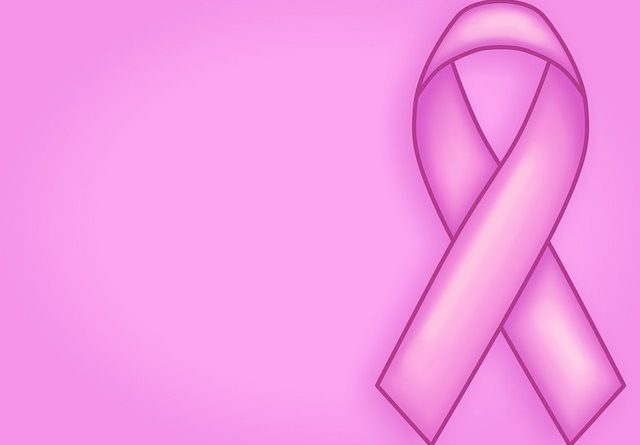Can You Reduce Your Risk of Breast Cancer?
Can You Reduce Your Risk of Breast Cancer? The more you understand a topic, the more interesting it becomes. As you read this article, you will see that the subject of cancer is certainly no exception.
Do we hear it all the time? Lose weight for your health. However, few people realize how important it is to their physical health and longevity.
In January 2003, the Journal of the American Medical Association presented a study concluding that obesity appears to reduce life expectancy, especially in young people.
The researchers compared body mass index (BMI) with life expectancy and found a correlation between early death and a higher BMI. For example, a 20-year-old Caucasian male, 5’10” tall and 288 pounds with a BMI over 0, is estimated to have lost 13 years of his life to obesity.
Jamie McManus, M.D., F.A.A.F.P. and author of The “Personal Guide to Your Health” notes that although this study addresses extreme obesity levels, there are still millions of overweight people in the developed world with life expectancies less than 3 years old. five years compared with people of a healthy weight Obesity-related deaths each year in the US.
Can You Reduce Your Risk of Breast Cancer? How does obesity shorten our life?The answer to this question is complex. complex, but there is a clear link between obesity and the development of cancer, showing that obesity significantly increases the risk of developing cancer in the following organs: breast, colon, ovary, uterus , prolapse of the pancreas, kidney and gallbladder.
Michael Thun, MD, vice president of epidemiology and surveillance research for the American Cancer Society (ACS), explains that one of the reasons obesity may increase cancer risk is because Fat cells produce a form of estrogen called estradiol that promotes rapid cell division, increasing the chance of a random error of genetic cells replicating, which can lead to cancer.
In addition, fat concentrated around the abdomen can increase insulin and insulin-like growth in the blood, which may increase the risk of cancer.
“Postmenopausal obese women have a 50% higher relative cancer risk,” Thun notes, “and obese men have a 0% higher risk of colon cancer? bile ducts and endometrium were five times higher in obese subjects.
There is evidence that cancer rates in developed countries are increasing 5 to 15 times faster than in developing countries. In populations where the diet consists primarily of fresh fruits and vegetables and whole grains? unlike the typical Western diet of fatty meats, refined flours, oils and sugars? much lower risk of cancer.
Can You Reduce Your Risk of Breast Cancer? The interaction between diet and cancer development is an active area of Dr. David Heber, M.D., Ph.D. and author of “What Color Is Your Diet,” said, “It seems that diet has the most significant effect after the formation of cancer, either inhibiting or stimulating the growth of cancer. development of that cancer”.
With the risk of oversimplifying a series of complex interactions, the typical Western diet that leads to obesity may actually work to stimulate cancer cell growth. It’s never too late to improve your health by eating healthy and adopting a healthier lifestyle. . Here are simple steps to take that can bring immediate improvements to your health and vitality.
The best time to learn about cancer is before you get to the heart of the matter. Savvy readers will continue reading to gain valuable experience about cancer while it’s still free.
1.Check your body mass index (BMI) to determine if your weight becomes a health risk. According to the Centers for Disease Control and Prevention, 60% of Americans are overweight, defined as having a BMI (height-to-weight ratio) greater than 25. Of these, nearly half (27%) ) is considered obese, with a physical body mass index of 30 or higher. In 1980, only 15% of Americans were considered obese. You can check your BMI on the website below.
2.Adjust your diet to your body’s needs. If you eat and drink more calories than your body needs, you will gain weight. Learn to control calories and portion sizes, make recipes leaner, and eat less often at fast food restaurants. Also learn to snack on healthy choices.
3.Color your diet with a variety of cancer-fighting fruits and vegetables of color. There are seven different colored fruits and vegetables, and by choosing between five and nine daily servings from a variety of fruits and vegetables, we’re increasing our intake of cancer-fighting nutrients (and different types of nutrients). other diseases).
4. Eat lean protein at every meal. Proteins provide a strong signal to the brain, making you feel fuller for longer. The right protein source is essential for controlling your hunger with fewer calories and is essential for maintaining your lean muscle mass. Protein choices should be fruit-flavored soy milk; white meat and turkey, seafood such as shrimp, shrimp, scallops and lobster and sea fish or vegetarians may prefer soy-based meat alternatives.
5.Boost your metabolism through activity. If you want to enjoy a healthy life, exercise is an important component. Colleen Doyle, MS, RD, director of nutrition and physical activity for the American Cancer Society (ACS), says adults should do something for 30 minutes a day that’s as hard as a brisk walk. Children should be active for one hour a day.
6. We’re more likely to form habits around the things we love, so look for activities that you enjoy doing. It’s also helpful to incorporate physical activity into your daily routine: use the stairs instead of the escalator or elevator at work, park your car in the parking lot furthest away from the supermarket, and don’t use it. remote control to change TV channels. .
Get help to make sure you build a healthy diet and achieve




